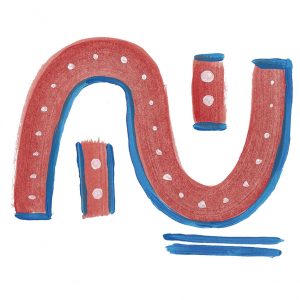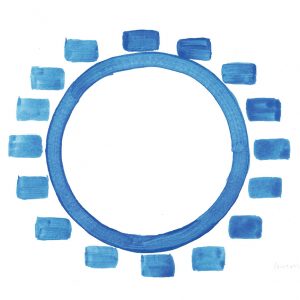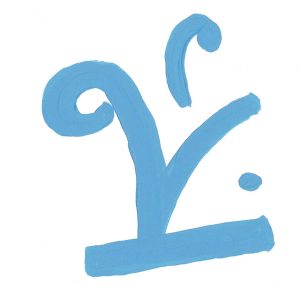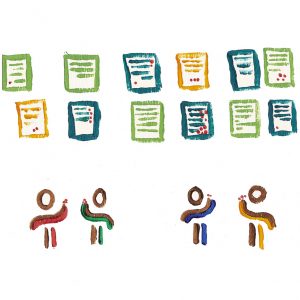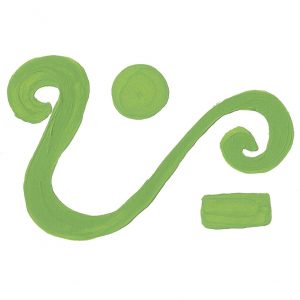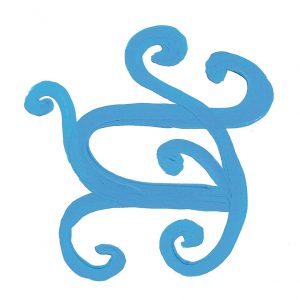Description
Self Study + One-to-One Mentoring
Self-Study: The workshop also includes a series of video learning tutorials that are available to you immediately upon registration. Each video is available online and downloadable as both an audio and video file for offline learning. The self-study portion of the workshop must be completed prior to the online workshop or one-to-one mentoring dates.
Whole Person Process Facilitation creates the container, the process and the meeting culture for people to contribute the best that they have to offer individually and collectively in meetings and in workshops. The individual, the group and the organization benefit. This is based on the understanding that when the whole person participates with their multiple intelligences including mental, spiritual, emotional, and physical intelligences, ideas, innovation, and solutions arise that lead to the best course of action.
People shift easily to an opportunity focus, leaving behind a problem focus. Whole Person Process Facilitation is invitational. The facilitator guides, yet is non-intrusive. When everyone in a group is invited to be their whole person within the group process, all are learning together and contributing to the greater and evolving wholeness, within a whole and evolving universe. Divisive situations transform into something that works.
What is the invitation?
Critically important for the best to emerge in people is an environment that embraces and benefits from diversity, inclusion, equity and belonging. The Whole Person Process Facilitation meeting culture has consistently, and cross culturally, created the environment and conditions for belonging.
Imagine the difference that is possible when people no longer park part of themselves at the door when they enter a gathering or a meeting. Imagine them bringing their whole selves with their knowledge, wisdom, and multi-intelligences in support of what is being discussed, considered, and acted on. When you imagine the benefits that this would be for families, teams, communities, and many variations of public and private sector organizations, you start to understand what we invite you to in a gathering, meeting or workshop using Whole Person Process Facilitation (WPPF).
People tell us it feels like magic when formerly divisive situations become life nourishing, collaborative, and empowering. Within a WPPF meeting or gathering, people shift away from a problem focus to a focus of co-creating the personal, professional and community path forward that they deem best individually and together.
To understand the power of using WPPF for a meeting, conference, or workshop, it is helpful to envision the three roles of WPPF that are interrelated. One role is that of a life nourishing operating system or container within which people have their experience. The second role is a guided, yet non-intrusive, facilitation process with a simple form for the handling of complexity. The third role is the establishing of a meeting culture. This triple role of WPPF enables people to focus on the content of what they have come together to do in ways that are not possible when the container is not present, when the facilitation process is intrusive and when there is no intentional establishment of a meeting culture.
Why use this approach?
Wholeness is our natural state. When we allow for this natural state to show up and be fully present, to contribute, to learn, and to make plans, the outputs and outcomes in any meeting are simply greater than is possible when people feel restricted from being their whole selves.
Using WPPF we are leaving behind an environment that was fostered for many decades of leaving what was referred to as your baggage at the door and showing up into a narrow definition of what the person could show up as. That environment was restrictive to the degree that it also restricted the benefits that could come from the multiple intelligences that are part of every human.
The Whole Person Process Facilitation environment created by its triple roles provides expansiveness rather than restriction. People are invited to bring their whole self to the extent that they individually feel comfortable doing so. With the whole self comes multiple intelligences. When the multiple intelligences of every individual have the opportunity to collaborate with the multiple intelligences within the group, they bring more possibilities for consideration. This leads to having conversations that need to be had to overcome stuck places. Every person can contribute and do their part more fully as the whole unit finds solutions and a more life nourishing way of moving forward together.
With frequent use of WPPF meetings, and especially when a choice is made to use WPPF meetings as a consistent meeting format in a family or organization, individuals and the collective grow in their capacity to function with their whole person, with their multiple intelligences in every moment. People learn, people contribute, individually and collectively, for the benefit of themselves, the group, and the enterprise.
Who needs to be involved?
Ideally, everyone who has a stake in sorting out whatever needs to be sorted in a meeting needs to be involved. This is an approach that bridges the silos that all too often have developed in any organization, be it family, team community, or organization. During the meeting itself, the individuals gathered conduct themselves as an interactive organization, finding their solutions in the cross-functional conversations.
For families, communities, and organizations that are committed to creating conditions of belonging, those organizations willing to go beyond the token acknowledgement of diversity, equity, and inclusion to really create themselves in a way that diversity, inclusion and equity are deeply valued, the frequent use of Whole Person Process Facilitation facilitates the conditions for belonging.
People use Whole Person Process Facilitation process and tools even as individuals, as couples, and as families to create more life nourishing rather than life depleting conditions for themselves and carrying out their lives. A functional team, using Whole Person Process Facilitation for all its meetings increases its individual and collective capacity to work with opportunities for the best outcomes, and to overcome challenges in ways that keep people engaged. And, speaking of the engagement of people, employee satisfaction in meaningful work increases.
How does it work?
Learning in this module is offered through 6 phases of learning, based on the Evolutionary Spiral. One of the multi-use tools that make up the Genuine Contact Toolkit, the Evolutionary Spiral offers a roadmap of your learning and development. Every phase provides the tools and tips for taking people through a Whole Person Process Facilitation meeting, the Genuine Contact Way.
- Discernment: In this turn of the evolutionary spiral, you will begin by discerning your expectations of operating systems, process facilitated meetings, and meeting culture. You’ll have the opportunity to create definitions that capture your perceptions of meetings, process facilitation, and whole person. You’ll develop clarity about what you need for process facilitation. You will be presented with five beliefs for the purpose of examining your worldview and considering their implications for your Whole Person Process Facilitation work
- Readiness: In this turn of the evolutionary spiral, you will learn what you’ll need to do to ensure sufficient readiness in yourself and in an organization for successful work with Whole Person Process Faciliation. You’ll be guided in developing a readiness checklist complete with actions that you can take towards readiness. Readiness of the facilitator requires a commitment to increasing self awareness. Readiness of the organization requires careful planning for the meeting.
- Engagement: In this turn of the spiral, you will have the opportunity to explore engagement. We will introduce two aspects of the human that need to be considered when contemplating engagement. You’ll have the opportunity to work out a plan for engaging yourself in the meeting, engaging the sponsor(s), and engaging the people in the organization.
- Construction: In this turn of the spiral, you will have the opportunity to make use of everything that you learned in the Discernment, Readiness and Engagement phases as you get yourself oriented to designing a meeting using Whole Person Process Facilitation. You will be walked through an exploration of cooperative meeting components that make up a Whole Person Process Facilitated meeting then onwards to practicing a design of a Whole Person Process Facilitated meeting. Following this exploration and practice, you will have your turn to design a meeting that you can imagine using fairly soon after learning this module.
- Implementation: in this turn of the spiral you will have the opportunity to examine the importance of planning for implementation from the beginning of your work with the WPPF meeting; to understand that there is a difference when the facilitator has a mandate to help guide implementation or only to prepare for implementation; the benefits of a single meeting using WPPF and the impact on the organization of frequent and regular meetings using WPPF.
- Monitoring and adjustment: in this turn of the spiral, you will be asked to do some monitoring and adjustment of your learning in this module. This orients you to monitoring and adjustment as an energy of flowing forward to the best possible future. You’ll be oriented to two categories for the monitoring and adjustment of the meeting in the organization, one regarding the meeting using WPPF and the second regarding implementation of the outcomes of the meeting. Some examples of monitoring and adjustment are provided.
The module is designed with follow-on facilitated peer-with-peer mentoring circles to support your ongoing learning with Whole Person Process Facilitation the Genuine Contact Way. These mentoring circles include group discussions facilitated by a Genuine Contact Trainer about what has been learned while applying your learning. This allows for deepening your learning and your facilitation through action/reflection adult learning.
The Complete Learning Program
This program includes 15 segments:
- Segment 1: Self-study video focusing on your Business and/or Development Goal. Plan for 1 hour.
- Segment 2: Welcome to Whole Person Process Facilitation. Plan for 1 hour.
- Segment 3: Cooperative Components of Whole Person Process Facilitation. Plan for 1 hour.
- Segment 4: Focus on The Planning Meeting. Plan for 1 hour.
- Segment 5: Four Fold Way. Plan for 20 minutes.
- Segment 6: Four Principles of Open Space Technology. Plan for 20 minutes.
- Segment 7: Five Beliefs of Genuine Contact. Plan for 45 minutes.
- Segment 8: Givens. Plan for 1.5 hours.
- Segment 9: WPPF in Creating and Sustaining a Culture of Leadership. Plan for 30 minutes.
- Segment 10: Origins of Frequently Used Tools. Plan for 2 hours.
- Segment 11: Noticing. Plan for 20 minute + 15 minutes daily.
- Segment 12: How You Show Up. Plan for 30 minutes.
- Segment 13: On the subject of Safe Space. Plan for 20 minutes.
- Segment 14: One-to-One Mentoring: To be determined with your GC Trainer
- Segment 15: Real-time Mentoring Circle.





